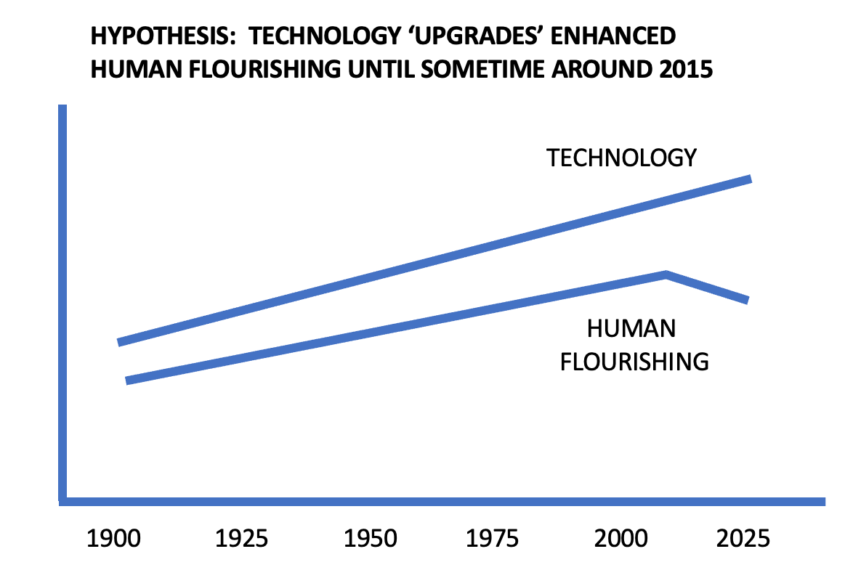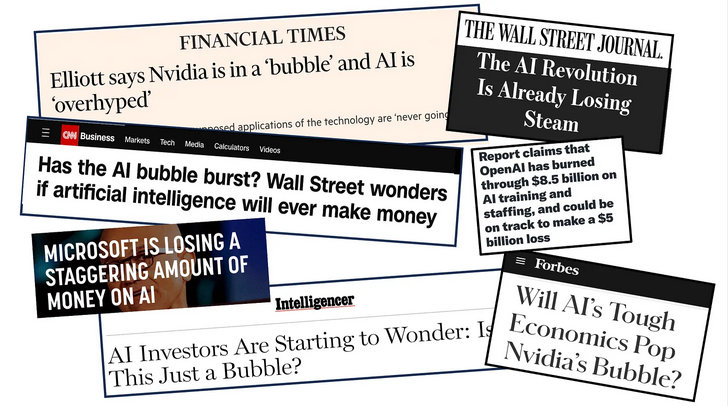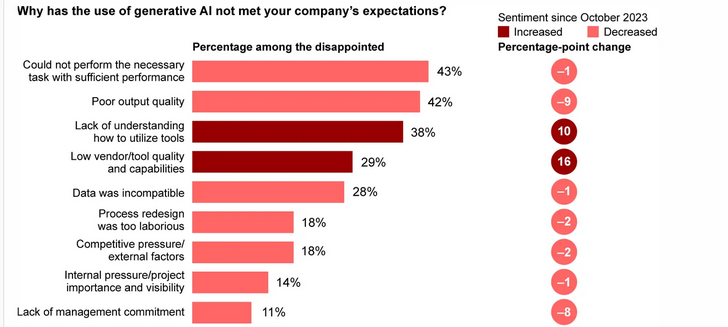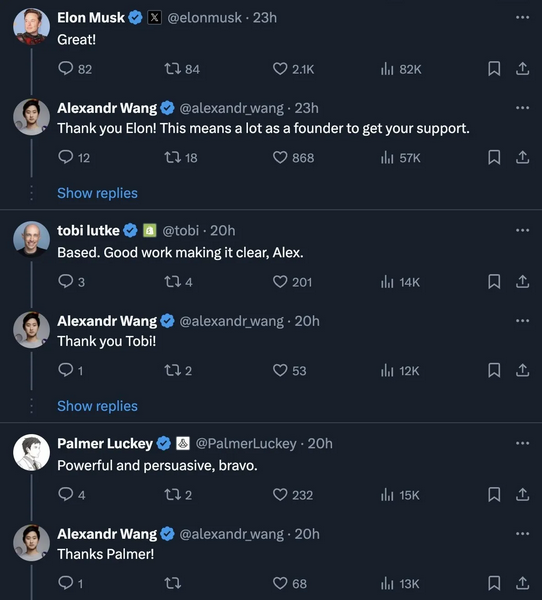So many questions. The first and perhaps the most urgent is … by what right do I stand before you and presume to lecture an already distinguished and knowledgeable crowd on the subject of Ai and its meaning, its bright promise and/or/exclusiveOR its dark threat? Well, perhaps by no greater right than anyone else, but no lesser. We’ll come to whose voices are the most worthy of attention later.
I have been interested in the subject of Artificial Intelligence since around the mid-80s when I was fortunate enough to encounter the so-called father of Ai, Marvin Minsky and to read his book The Society of Mind. Intrigued, I devoured as much as I could on the subject, learning about the expert systems and “bundles of agency” that were the vogue then, and I have followed the subject with enthusiasm and gaping wonder ever since. But, I promise you, that makes me neither expert, sage nor oracle. For if you are preparing yourselves to hear wisdom, to witness and receive insight this evening, to bask and bathe in the light of prophecy, clarity and truth, then it grieves me to tell you that you have come to the wrong shop. You will find little of that here, for you must know that you are being addressed this evening by nothing more than an ingenuous simpleton, a naive fool, a ninny-hammer, an addle-pated oaf, a dunce, a dullard and a double-dyed dolt. But before you streak for the exit, bear in mind that so are we all, all of us bird-brained half-wits when it comes to this subject, no matter what our degrees, doctorates and decades of experience. I can perhaps congratulate myself, or at least console myself, with the fact that I am at least aware of my idiocy. This is not fake modesty designed to make me come across as a Socrates. But that great Athenian did teach us that our first step to wisdom is to realise and confront our folly.
I’ll come to the proof of how and why I am so boneheaded in a moment, but before I go any further I’d like to paint some pictures. Think of them as tableaux vivants played onto a screen at the back of your mind. We’ll return to them from time to time. Of course I could have generated these images from Midjourney or Dall-E or similar and projected them behind me, but the small window of time in which it was amusing and instructive for speakers to use Ai as an entertaining trick for talks concerning Ai has thankfully closed. You’re actually going to have to use your brain’s own generative latent diffusion skills to summon these images.
[…]
An important and relevant point is this: it wasn’t so much the genius of Benz that created the internal combustion engine, as that of Vladimir Shukhov. In 1892, the Russian chemical engineer found a way of cracking and refining the spectrum of crude oil from methane to tar yielding amongst other useful products, gasoline. It was just three years after that that Benz’s contraption spluttered into life. Germans, in a bow to this, still call petrol Benzin. John D. Rockefeller built his refineries and surprisingly quickly there was plentiful fuel and an infrastructure to rival the stables and coaching inns; the grateful horse meanwhile could be happily retired to gymkhanas, polo and royal processions.
Benz’s contemporary Alexander Graham Bell once said of his invention, the telephone, “I don’t think I am being overconfident when I say that I truly believe that one day there will be a telephone in every town in America”. And I expect you all heard that Thomas Watson, the founding father of IBM, predicted that there might in the future be a world market for perhaps five digital computers.
Well, that story of Thomas Watson ever saying such a thing is almost certainly apocryphal. There’s no reliable record of it. Ditto the Alexander Graham Bell remark. But they circulate for a reason. The Italians have a phrase for that: se non e vero, e ben trovato. “If it’s not true, it’s well founded.” Those stories, like my scenario of that group of early investors and journalists clustering about the first motorcar, illustrate an important truth: that we are decidedly hopeless at guessing where technology is going to take us and what it’ll do to us.
You might adduce as a counterargument Gordon Moore of Intel expounding in 1965 his prediction that semiconductor design and manufacture would develop in such a way that every eighteen months or so they would be able to double the number of transistors that could fit in the same space on a microchip. “He got that right,” you might say, “Moore’s Law came true. He saw the future.” Yes … but. Where and when did Gordon Moore foresee Facebook, TikTok, YouTube, Bit Coin, OnlyFans and the Dark Web? It’s one thing to predict how technology changes, but quite another to predict how it changes us.
Technology is a verb, not a noun. It is a constant process, not a settled entity. It is what the philosopher-poet T. E. Hulme called a concrete flux of interpenetrating intensities; like a river it is ever cutting new banks, isolating new oxbow lakes, flooding new fields. And as far as the Thames of Artificial Intelligence is concerned, we are still in Gloucestershire, still a rivulet not yet a river. Very soon we will be asking round the dinner table, “Who remembers ChatGPT?” and everyone will laugh. Older people will add memories of dot matrix printers and SMS texting on the Nokia 3310. We’ll shake our heads in patronising wonder at the past and its primitive clunkiness. “How advanced it all seemed at the time …”
Those of us who can kindly be designated early adopters and less kindly called suckers remember those pioneering days with affection. The young internet was the All-Gifted, which in Greek is Pandora. Pandora in myth was sent down to earth having been given by the gods all the talents. Likewise the Pandora internet: a glorious compendium of public museum, library, gallery, theatre, concert hall, park, playground, sports field, post office and meeting hall.




















